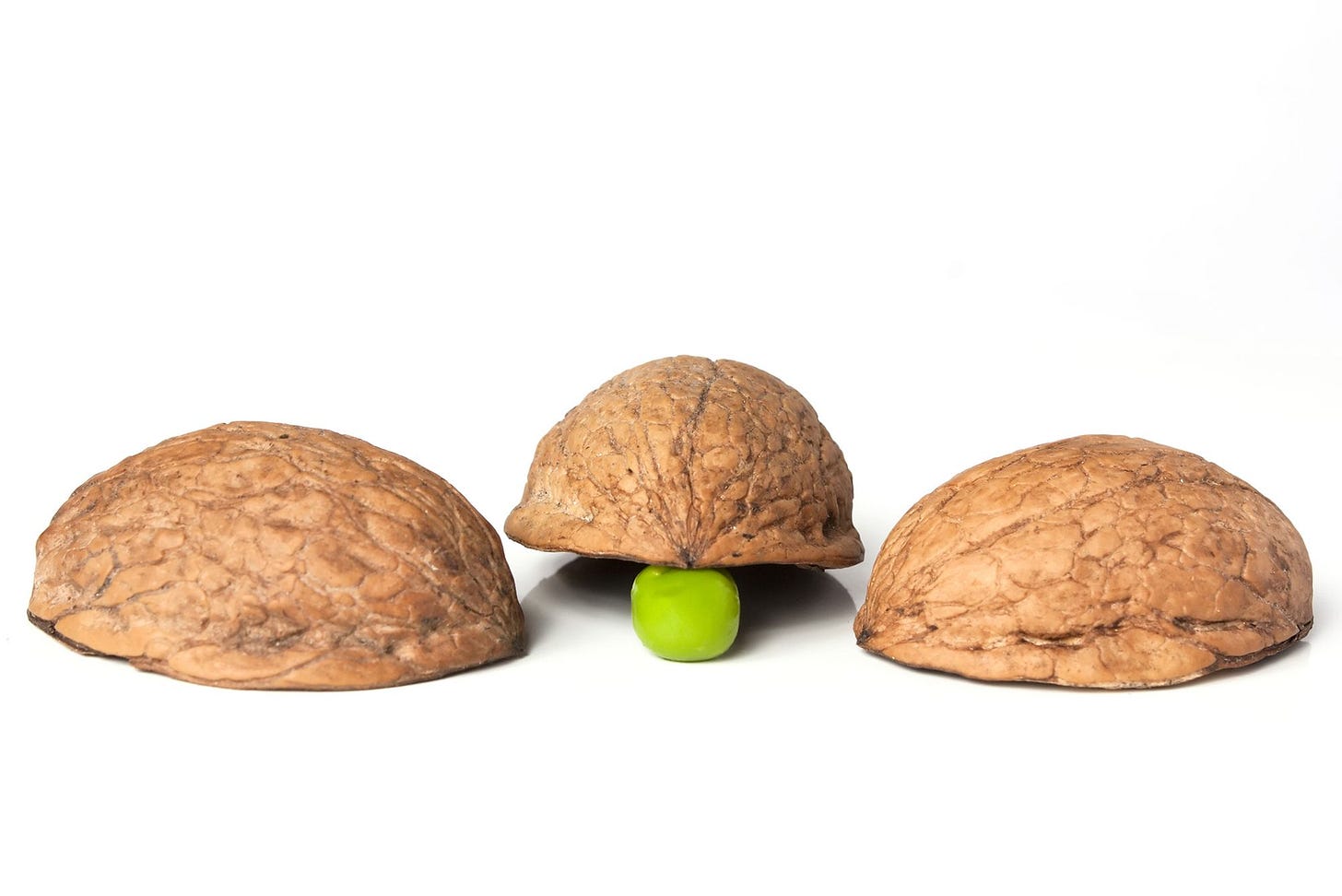Con Artist Deception

I spent one summer during my high school years living and working at the beach. While that may sound rather idyllic and peaceful, it was a fairly stressful time. My first employer - the boardwalk pier amusement park - began my indoctrination by teaching me the subtle methods of separating people from their money.
My unwillingness to intentionally deceive led to me being fired shortly thereafter. But not before I learned the techniques of how nearly every carnival game is rigged - and the tricks on how to beat them.
But this is not a discussion of how to win giant stuffed animals. Rather, it's a brief exposé on con artists and how they so effectively ply their craft.
Let's begin with the word con. You might think it has something to do with felony or malfeasance or opposition. But con in this context is nothing of the sort. Con is short for confidence. Thus we are talking about confidence artists. They defraud us by first gaining our trust.
That's why you see the person managing each carnival booth (game) demonstrating how easy it is to win. You just cover the red spot like this. You lift up the bottle just so. You throw the dart at the balloon like this. It looks and seems so simple.
These techniques are nothing new. The shell game, perhaps the original con, dates back to Ancient Greece. You think you are following the right shell but what you don't realize is the con's sleight of hand to move or hide the ball. Of course, if you saw everyone before you losing, you'd probably never play.
And that's why the con artist will play the game fairly while offering small wins. Or, in the case of the carnival, small prizes. This is how you are lured in. You see honey, I can beat this!
Now you're a ringer. You've been had.
Once you play for the larger prizes all sorts of sleight of hand (and mind) are used. While you keep pulling out your money.
What none of us likes to look at is how easily we can be conned. Whether it's our vanity, greed, compassion, or basic naïveté - or more likely, a combination of all of these - we believe what we see and we most definitely believe we are right.
Regrettably we are wrong. And good confidence artists can spot us a mile away.
Yet there is one con artist who stands head and shoulders above the rest. He is so exceptionally talented, an exquisite master in the art of subtle manipulation. In fact, he is so sly and cleverly cloaked that you've probably never seen him before. Oh but he gets you. He gets all of us. He steals our trust every moment of the day. And we don't even know we've been had. That's how good he is.
Forget about trying to beat him. You can't. Ever. But you can step away from his shell game. Once you know who he is.
Pssst. He's known on the street as the ego.
The ego deceives us in myriad ways. But the underlying hook in every one of his games is to get us to believe that the world and other people can make us happy or unhappy. But he doesn't start with such an overt ploy - that would be too easy to see through. Instead, he starts small by having us identify with our body. Getting us to believe that "me" and this body are united. Easy peasy. Now we've been had. Thus whenever anything "good" or "bad" happens to the body, it now happens to me.
And the way we think we can beat this game is by having a better life. If only I had more money. Or better health. Or a more compassionate partner. Or nicer friends. ... Then I would be happy. And if we believe we won't find that in this lifetime, then the ego convinces us the next one will be better.
The ego doesn't care about us. Doesn't care whether we're happy or sad. As long as we keep playing its game. Hour after hour. Day after day. Year after year. Lifetime after lifetime.
Until we recognize that there is another way.
Which is by seeing through the ego's game. By understanding the ego's motives and seeing how easily we fall into its trap.
All we need to do is look.
We look at each time we fall for the ego. Which is whenever we get angry. Or fearful or anxious. Whenever we feel ashamed or little. When we feel like a victim or a victimizer.
But the key is this: Looking with honesty and gentleness. And without judgment.
We don't beat ourselves up for getting sucked into the ego's game. Every one of us plays this game over and over. The goal is not to stop playing the game. If we could, we wouldn't be here. We would have already awakened into the oneness we never left.
Rather, the goal at this stage is to observe ourselves playing the game. To smile kindly on ourselves and everyone around us. And to quietly whisper to our inner teacher, "Help me to see this differently. Help me to realize that my sense of peace has nothing to do with getting more money or health or friends. Help me to sense the love that unites everything."
The more we practice observing ourselves with kindness and without judgment, the less we get sucked into the drama. And the better we feel. We are no longer being conned.
Join me in Thursday's class where we'll explore the subtle techniques of the ego in order to not only become better observers but consistently take home the giant stuffed animals. I look forward to seeing you then.



